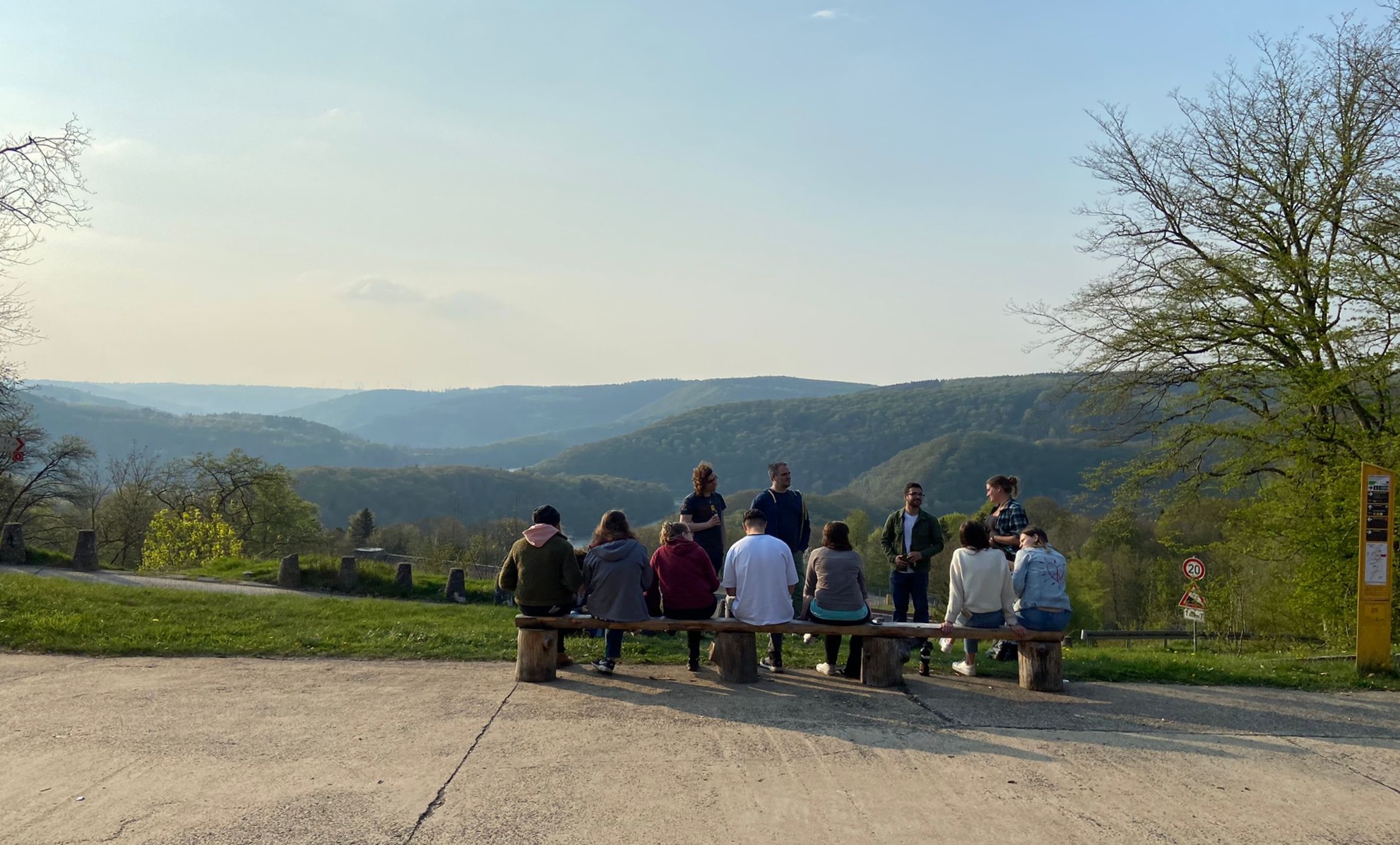At the beginning of May, twenty-seven university students took part in the “History Treks – Promoting European Citizenship and Sustainability along the Liberation Route Europe” project. This initiative, part of the LRE Youth Programme array, was co-organised by the Foundation with LRE NRW and funded thanks to an Erasmus+ grant.
Coming partly from the Radboud University of Nijmegen (Netherlands), the Duisburg-Essen University (Germany) and the Hogschule Rhein-Waal (Germany), the students came together for a 5-day trip along the Liberation Route Europe. As part of this experience, they visited some of the most important sites linked to WWII history and remembrance in the Limburg, Gelderland and North-Rhine-Westphalia regions and reflected on the different perspectives of WWII history and the long-lasting consequences for Germany and the Netherlands.
On the first day, the students, accompanied by LRE Foundation staff and some university professors, arrived at the Vogelsang International Place, a former Nazi training institution used today as a place of active remembrance. They explored the complex, visited the museum’s permanent exhibition, and discussed the propaganda movie ‘Der Herscher’ (1937, by Veit Harlan). After two days, the group moved to the Netherlands, where they were welcomed at the Netherlands American Cemetery in Margraten by Frenk Lahaye from the American Battle Monuments Commission. After visiting this iconic remembrance place, the students continued with a guided tour of the German War Cemetry in Ysselsteyn.
On May 4 – Remembrance Day in the Netherlands – the students joined the commemorations at the Oversteek (‘The crossing’) bridge in Nijmegen. They took part in the emotional Sunset March, a daily tribute to the Allied soldiers who fought for the liberation of The Netherlands. On Liberation Day (May 5), the group continued with a guided tour of the Freedom Museum and Canadian Cemetery in Groesbeek. Finally, the trip ended in Oosterbeek, where the group visited the Airborne Museum and the Airborne War Cemetery in Oosterbeek.
Luisa Röhrich, Professor at the Duisburg-Essen University: “The students experienced an interesting and intensive time. They learned a lot about the cultures of commemoration in the neighbouring countries, which resulted in an important contribution to the German-Dutch friendship and exchange. The German students found the Sunset March particularly emotional. That Germans, less than 80 years after the liberation, have the opportunity to walk along the march, is a strong sign of the friendship between the neighbouring countries and shows the importance and overwhelming significance of projects such as the Liberation Route Europe”.
